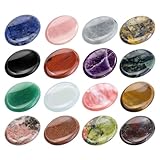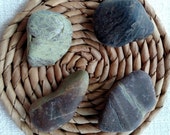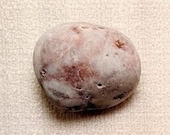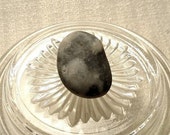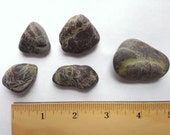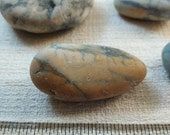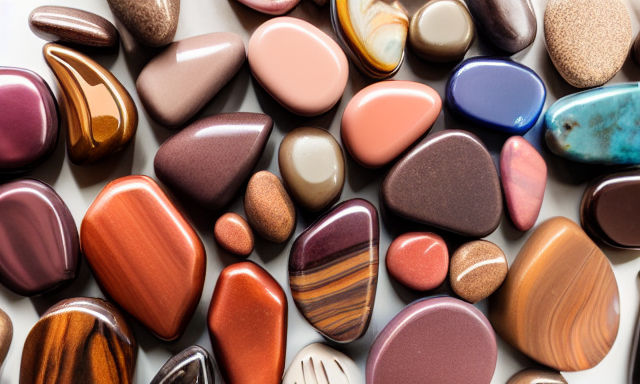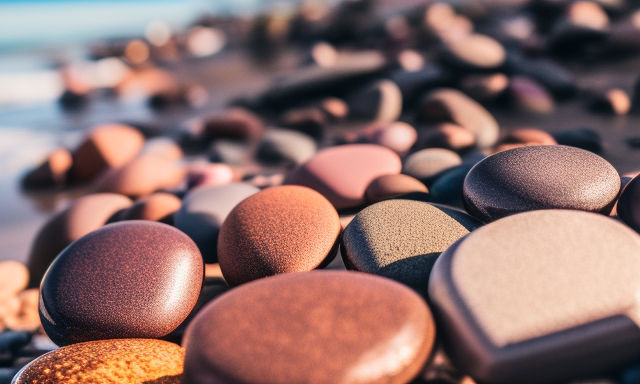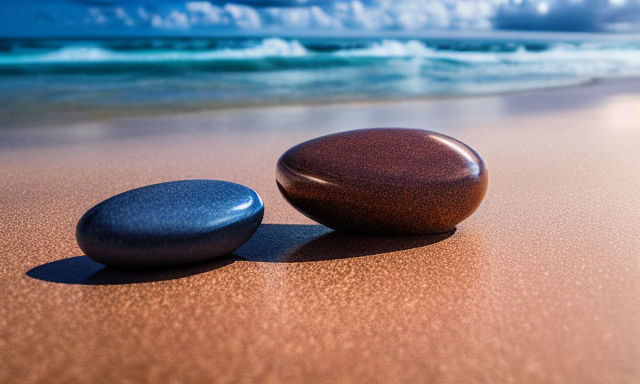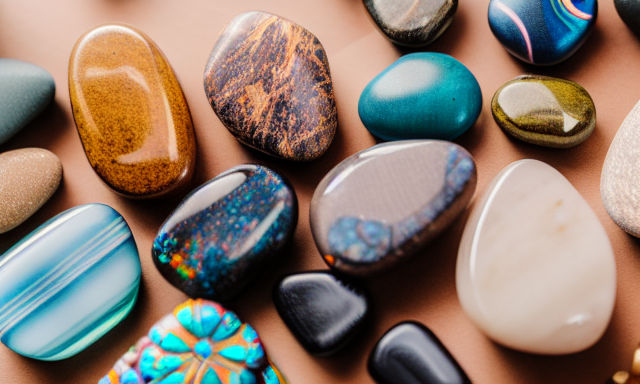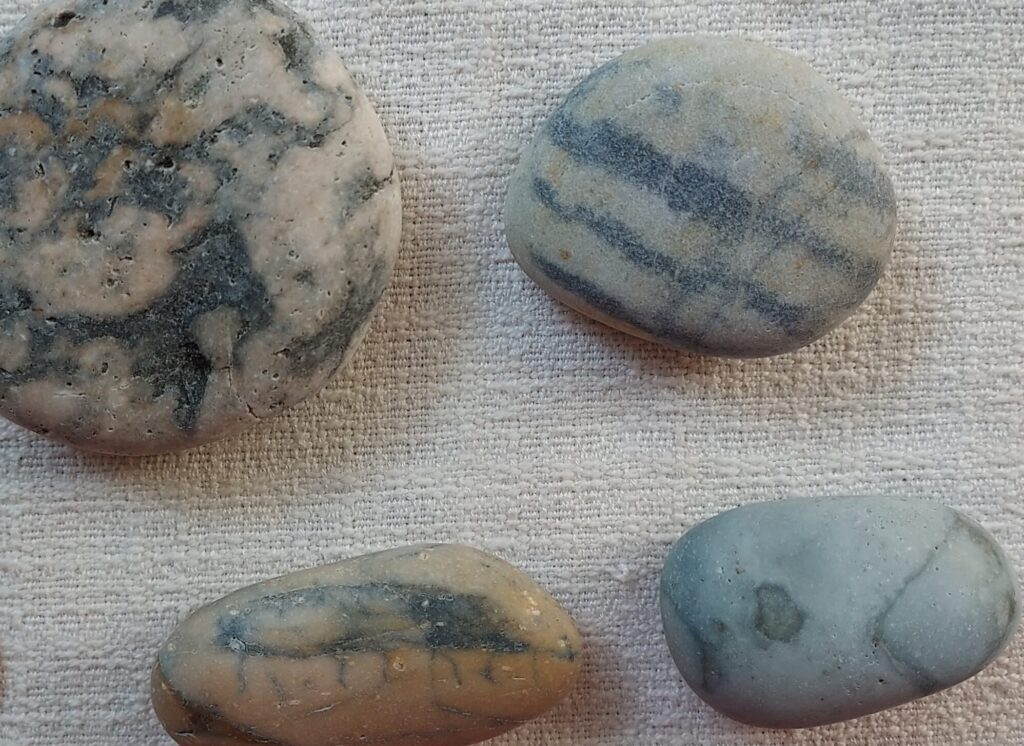The Power of Worry Stones: Your Guide to Stress Relief and Grounding
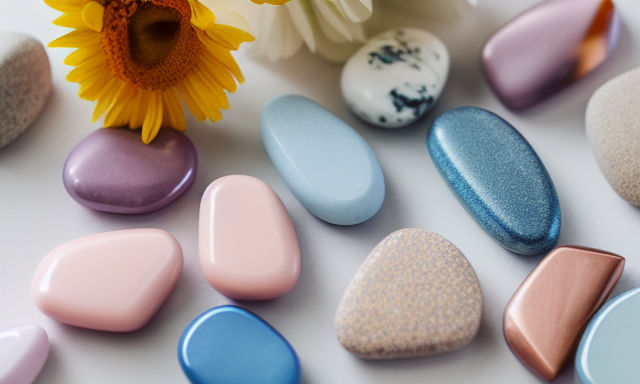
Life’s journey often comes with its share of worries and anxieties, leaving us seeking solace and inner peace. In such moments, worry stones emerge as timeless companions, offering a path to stress relief and grounding. These small, unassuming gems hold the potential to create a profound impact on our emotional well-being. In this comprehensive guide, we explore the power of worry stones and how they can become essential tools in your quest for serenity.
What Are Worry Stones?
Worry stones, also known as palm stones or thumb stones, are smooth, polished crystals or stones with an indentation that perfectly fits the thumb. Their origins can be traced back to ancient civilizations, where people would hold these stones during times of stress or anxiety, rubbing them gently with their thumb. The repetitive motion was believed to promote relaxation and soothe the mind.
Worry stones come in various shapes and sizes, with an array of mesmerizing crystals and gemstones to choose from. Each type of stone carries its unique energy and metaphysical properties, making the selection process a deeply personal and intuitive experience.
The Science Behind Worry Stones
Beyond their historical significance, there’s a scientific rationale behind the efficacy of worry stones. The act of rubbing the stone with the thumb is a form of tactile stimulation that engages the brain’s sensory receptors. This interaction triggers a relaxation response in the nervous system, helping to reduce the production of stress hormones like cortisol. As a result, heart rate and blood pressure may decrease, leading to a calmer state of mind.
Studies have shown that engaging in repetitive actions, such as rubbing worry stones, can have a soothing effect on the brain, promoting a sense of comfort and well-being. This simple yet profound act can be especially beneficial for individuals experiencing anxiety, stress, or emotional turmoil.
The Therapeutic Benefits of Worry Stones
Worry stones serve as tangible stress relievers, allowing you to release tension and worry through the simple act of rubbing the stone. They can be especially helpful during overwhelming situations or moments of nervousness, offering a sense of comfort and support.
Stress Relief and Anxiety Reduction:
The repetitive motion of rubbing the worry stone activates the parasympathetic nervous system, promoting relaxation and a sense of calm. As your thumb glides over the smooth surface of the stone, you can feel the weight of your worries lift, replaced by a soothing serenity.
Grounding and Centering:
Worry stones are deeply connected to the Earth’s energy, making them powerful tools for grounding and centering. As you hold the stone, you become anchored to the present moment, allowing the chaos of the outside world to fade away. This grounding effect provides stability, helping you navigate through life’s challenges with more clarity and focus.
Meditation and Mindfulness:
Incorporating worry stones into meditation or mindfulness practices can deepen the experience. As you meditate, focus on the stone’s texture and energy, allowing it to guide you into a state of mindfulness and inner stillness. Worry stones can enhance your ability to stay present, quiet the mind, and access a profound sense of inner peace.
Emotional Support and Coping:
During times of grief or emotional upheaval, worry stones can offer gentle consolation. The physical connection with the stone provides a sense of companionship and helps in processing emotions. Simply holding the stone can provide comfort during difficult moments, reminding you that you are not alone in your journey.
Personalized Intention Setting:
Worry stones can be programmed with personal intentions, making them potent tools for manifestation and self-improvement. Infuse the stone with affirmations or goals, reinforcing your commitment to positive change. As you use the stone regularly, it becomes a tangible reminder of your aspirations and a source of motivation.
Coastal Beach Stones
Choosing Your Perfect Worry Stone
Selecting a worry stone is a deeply personal process. It’s essential to trust your intuition and choose a stone that resonates with you. When exploring worry stones, consider the following factors:
Stone Type: Different crystals and gemstones possess unique energies and properties. Choose a stone that aligns with your intentions and needs. For example, calming stones like Amethyst or Aquamarine can aid in stress relief, while grounding stones like Black Tourmaline or Hematite can offer stability.
Size and Shape: Opt for a worry stone that fits comfortably in your hand, with a smooth and pleasing texture. The shape of the stone should feel natural and easy to hold.
Personal Connection: Hold the stone in your hand and see if you feel a connection or a sense of energy exchange with it. Each stone has its personality and energy, so it’s crucial to find one that resonates with you on an energetic level.
Intention Setting: Before using your worry stone, cleanse it to clear any prior energies, and charge it with your specific intention or purpose. You can do this through visualization or by setting clear intentions in your mind.
Embrace the Comfort of Worry Stones
Worry stones are more than just beautiful crystals; they hold the capacity to soothe, heal, and inspire. Embrace the comfort of worry stones as your allies on life’s journey, and allow their simple yet profound energy to guide you towards serenity and grounding.
As you integrate worry stones into your daily life, discover the unique benefits each stone offers and observe the positive impact on your emotional well-being. Experiment with different stones to find the ones that resonate most with your intentions and needs.
Discover a wide selection of worry stones on Amazon: Worry Stones Collection
Disclaimer: The information provided in this article is for educational purposes only and should not be considered as a substitute for professional medical or mental health advice. Consult with a qualified healthcare or mental health professional regarding any medical or emotional concerns.



